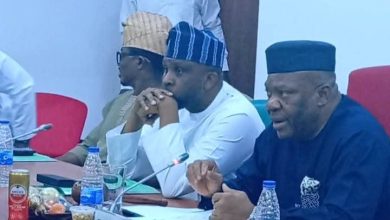
Once again, the 23rd of September is here, and Akwa Ibom people, both at home and in the Diaspora, are rolling out the drums to celebrate one of the most cherished dates on their calendar. As it is, today makes it exactly 37 years since the then Military Administration of General Ibrahim Badamasi Babangida, GCFR, through Decree 24, announced the creation of Akwa Ibom alongside its twin, Katsina, on that day in 1987.
From historical records, the journey of what eventually metamorphosed as Akwa Ibom State began in 1928 with the formation of a dynamic socio-cultural and political organisation known as the Ibibio Union. The organisation later evolved into the Ibibio State Union, which championed the cause for state creation in Nigeria.
After Nigeria’s independence in 1960 and thereafter, the agitation for the creation of states intensified. On May 5, 1967, the Military Head of State, General Yakubu Gowon, announced the unbundling of the nation from the hitherto regional governments to a 12-state structure. That exercise gave birth to the South Eastern State, which encompassed the Calabar and Ogoja provinces. The present Akwa Ibom State was known as the Mainland part of the South Eastern State. In 1976, South Eastern State was renamed Cross River State, but this change did not meet the aspirations of the people, as they still pressed on for a state.
After an unsuccessful attempt at having Akwa Ibom created under subsequent military regimes, the hope was however rekindled under General Ibrahim Badamasi Babangida’s administration. Finally, on Wednesday, September 23, 1987, Akwa Ibom, which is codenamed ‘the Land of Promise,’ was born, and this great feat marked a significant milestone in the history of its people.



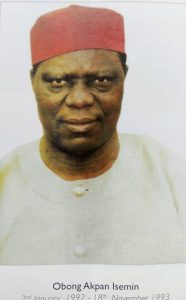
From a fledgling state grappling with limited infrastructure and human capital development, Akwa Ibom has grown in leaps and bounds into an economic hub, driven by a combination of resource management, visionary leadership and the tenacity of its people.
Read Also: ARISE Agenda Will Accelerate A’Ibom Development – Eteidung Edem
Leadership Transition From Military to Civilian Rule:
Colonel Jonathan Tunde Ogbeha kick-started the government of Akwa Ibom on September 28, 1987, and served for 10 months. He was succeeded by Col. Godwin Osagie Abbe, who governed from July 31, 1988, until January 5, 1992.
Following Abbe, Group Captain Idongesit Nkanga took over on September 5, 1990, and led the state until January 2, 1992. He was succeeded by Obong Akpan Isemin, who became the first civilian governor on January 2, 1992, during the brief period of the Third Republic, until the military retook power on November 17, 1993.
Col. Yakubu Bako succeeded the late Isemin on December 15, 1993, serving until August 21, 1996. He was followed by Navy Captain Joseph Adeusi, who governed from August 21, 1996, until August 9, 1998. The last military administrator was Group Captain John Ebiye, who governed Akwa Ibom until the return to democratic dispensation on May 29, 1999.
It is worth noting that at the outset, Akwa Ibom was primarily a civil service state with minimal industrial presence and underdeveloped infrastructure. The military administrators and a civilian governor who initially administered the state laid the groundwork for governance and initiated basic infrastructural development. This foundation was crucial for what was to come in subsequent democratic administrations.
Democratic Rule and the Push for Industrialisation
With the return to democracy in 1999, Akwa Ibom began to experience its first major wave of economic and industrial growth under the leadership of an esteemed architect turned governor, Obong Victor Attah. His administration from 1999 to 2007 championed the cause of resource control and laid the groundwork for Akwa Ibom to benefit significantly from the nation’s oil wealth. The construction of a five-star hotel at Nwaniba, the Ibom Power Plant in Ikot Abasi, the Ibom International Airport, and several other life-touching projects under Attah’s leadership marked a turning point in the economic fortunes of Akwa Ibom and the people. His visionary leadership and foundational policies account for his being called the father of modern Akwa Ibom State.



Era of Uncommon Transformation:
The industrialisation agenda gained further momentum with the administration of Chief Godswill Obot Akpabio, whose “Uncommon Transformation” agenda turned Akwa Ibom into a construction hub. His administration, from 2007 to 2015, embarked on massive infrastructure projects, from the construction of roads with ‘pipe-jacking systems,’ bridges and flyovers to the Godswill Akpabio International Stadium, the Ibom Tropicana Entertainment Centre, the E-library, and several others. All these showcased the growing urbanisation of the state.
Era of Superior Performance and Completion Agenda:
Governor Emmanuel, who took over in 2015, shifted the focus toward economic diversification. Under his administration, Akwa Ibom experienced a resurgence of industrial activities, with investments in agriculture, aviation, and ICT. Emmanuel’s ‘Superior Performance’ and ‘Completion Agenda’ saw the major projects being executed at the Victor Attah International Airport, as well as making Akwa Ibom the first state to own an airline company, Ibom Air, with a good number of planes in its fleet travelling to and fro Uyo, Abuja, Lagos, Port Harcourt, among other states, and Accra in Ghana.
The administration of Udom Emmanuel also prioritised the attraction of foreign direct investments.
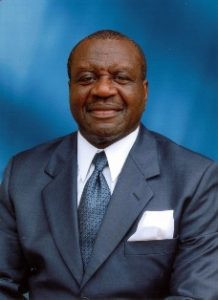
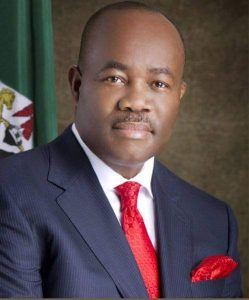
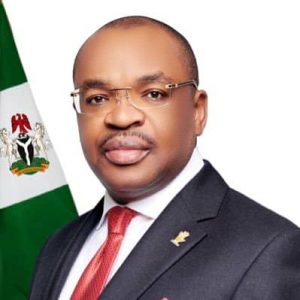
Governor Umo Eno’s A.R.I.S.E. Agenda Heralds Renewed Development
On May 29, 2023, Akwa Ibom welcomed a new chapter with the swearing-in of a seasoned entrepreneur and cleric, Umo Bassey Eno, as the fifth democratically-elected governor of the now 37-year-old state. Seven weeks after he assumed office, Pastor Eno formally launched his administration’s A.R.I.S.E. Agenda, a blueprint comprising Agricultural Revolution, Tourism and Environmental Management, Rural Development, Women and Youth Empowerment, Infrastructural Maintenance and Advancement, Security Management, Quality Health Sector Management, and Education, Economic, Industrial, and Social Advancement. He told stakeholders at the event, which was held at Ibom Icon Hotels and Golf Resort, in July that the new governance roadmap comes with a lot of deviation from the normal and will ensure the delivery of its dividends to the people.
Fourteen months after that pronouncement, political pundits in the state, including critics of his administration, have nodded in affirmation that the Eno-led government, apart from consolidating the achievements of past leaders, has heralded renewed development across the 31 local government areas of the state.
Agricultural Revolution:
Governor Umo Eno has taken a decisive stand on agriculture and food security in Akwa Ibom. His commitment to the well-being of the people goes beyond political rhetoric. His administration has prioritised tangible actions and programs that directly address citizens’ needs while ensuring that no one goes hungry amidst these economic challenges. So far, his achievements in this important sector include the Ibom Model Farm Project, flag-off of Akwa Ibom-Cares Phase 2 with the distribution of agricultural inputs and assets to farmers in the state; empowerment of poultry farmers (distribution of day-old chicks and feeds); distribution of farm inputs to public schools; provision of operational funds for the Coconut Refinery; Cocoa Development Project mainly for maintenance of nurseries and assisting farmers with inputs in the state; proposed Model Palm Oil Mill in Ibekwe, Mkpat Enin LGA; distribution of fingerlings and other inputs to fish farmers; construction of Ibom Model Farm—a pilot Songhai model integrated farm on 50 hectares of land in Nsit Ubium LGA, AKSG through Rural Access and Agricultural Marketing Project (RAAMP); presentation of cheques to the Project Affected Persons (PAPs) along Owot Uta, Afaha Udo Eyop and Edebom 1 Road project; and presentation of solar-powered water pumps to farmers for dry season farming among several other great feats.
Rural Development:
Another key aspect of Governor Umo Eno’s A.R.I.S.E. agenda is his focus on advancing rural areas. His “One Project per Local Government Area” initiative shows his strong commitment to ensuring equal development across Akwa Ibom. Through this program, stakeholders in each local government area are tasked with selecting a major development project, such as a state-of-the-art primary health centre equipped with modern facilities or a top-tier model primary school. This approach spans all 31 LGAs and is currently addressing the unique needs of each area and promoting balanced growth throughout the state.
Infrastructure:
My findings reveal that no fewer than 39 road projects, totalling 335.735 kilometres, inherited from the immediate-past administration, have been funded, completed and are ready for inauguration. Meanwhile, Governor Umo Eno has also flagged off and completed his road projects, benefiting Akwa Ibomites. Notable among these are the construction of the 7.9km dual carriage Ring Road III Extension from Idoro Road linking the three LGAs of Uyo, Ikono and Ibiono Ibom; construction of Ndiya Street and its environs, Uyo LGA; construction of the 1.1km Spring Road, Ikot Ekpene LGA; construction of the 2.1km Effiong Essang Street, Oron LGA; construction of the 2.1km Ukpong Street, Oron LGA; construction of the 2.4km Mkpok Housing Estate Road, Eket LGA; construction of the 1.3km, 8-metre-deep underground flood control tunnel along Atiku Abubakar Avenue, Uyo LGA; reconstruction of Afaha Ube Street, Uyo LGA; construction of the 3.3km Idua Road, Eket LGA; emergency intervention works at Afia Nsit Road, Eket LGA; construction of the 60m Span Nto Ide-Ikot Amba Bridge with 800m approach road, Obot Akara LGA; rehabilitation works and street lighting on D-Line Ewet Housing Estate, Uyo LGA; completion of the 24km Oron Road expansion (from Ring Road III to Victor Attah International Airport Gate); completion of internal roads at Shelter Afrique Estate, Uyo LGA; construction of the 5.0km Mary Slessor Hospital Road with 30m Span Bridges, Itu LGA; construction of the 15.13km Ikot Esu-Otomo-Zumini Road, Ika LGA; construction of the 21.5km Urua Naira-Ikot Nseyen-Ikot Nkwot-Nung Ukim Road with a 45m Span Bridge, Ikono LGA; construction of the 7.5km (3km Ekim Eyo Abasi Road in Udung Uko/Oron LGAs and 4.5km Edikor-Udu-Oksbo in Udung Uko/Mbo/Oron LGAs); construction of the 6.36km Nko-Ikot Abia Ossom-Ikpe Mbak Eyop-Abak Ifia Link Road, Obot Akara LGA, with additional works of 0.9km outfall drain, 3.65km road, and another 2.5km road with a 0.93km outfall drain; construction of the 5.0km internal roads and 2.15km discharge drain in Akwa Ibom State College of Education, Afaha Nsit, Nsit Ibom LGA; construction of the 16.19km internal roads at Dakkada Luxury Estate, Ibiaku Issiet; construction of the 3.549km Ikot Ntuen Nsit International Stadium Road with a spur to Abak Road, Uyo; and construction of the 2.4km Abak Road-Nung Efa-Nung Mkpe-Urua Ndak Road, Obio Offot, Uyo LGA.
Security:
Governor Umo Eno has taken bold steps to improve security across Akwa Ibom. He created the Ministry of Internal Security and Waterways to oversee safety efforts. The Ibom Community Watch (ICW) was also launched by his administration, with 500 personnel already trained out of the planned 5000. For better maritime security, 14 patrol gunboats were donated to the Nigerian Navy, NN Jubilee. The purchase of 50 INNOSON mini-buses has enhanced patrols, and 20 Toyota Hilux vehicles have been given to security agencies. These efforts have strengthened peace and security throughout the state, making it the most peaceful in the whole country.
Education:
Governor Umo Eno is transforming education in Akwa Ibom with a comprehensive approach that focuses on upgrading schools, empowering teachers through enhanced training, and ensuring every child has access to quality learning. His administration’s efforts surpass those of any previous government since the state’s creation. These remarkable achievements speak volumes. continuation of free and compulsory education; payment of subvention to schools; payment of WAEC and NABTEB fees for exiting students; sponsorship of 39 Akwa Ibom children from rural areas for the Akwa Ibom/United Kingdom Education Exchange Programme; the first phase of the Education Support Fund for physically-challenged Akwa Ibom State indigenes studying in Nigerian tertiary institutions (in fulfilment of the promise made by His Excellency to assist persons with disability studying in tertiary institutions; release of funds for 106 persons with N250,000 per undergraduate and N300,000 per postgraduate student); production and distribution of one million copies of customized exercise books for pupils in public primary schools; payment of bursary to all students of Akwa Ibom State origin studying in public tertiary institutions in Nigeria. The Governor approved and released funds for the payment of bursaries through a designated portal, with students required to register and funds disbursed through the portal, and presently 71,047 students have registered, with 12,322 verified students having received bursaries totalling N123,220,000 for the current academic session 2023/2024); provision of funds for Senior Secondary Schools Examination (NECO) fresh accreditation and those due for re-accreditation (government graciously approved and released N4,280,000 for fresh accreditation of two public secondary schools and re-accreditation of 44 public secondary schools, ensuring their qualification to present students for the 2022/2023 NECO examinations); purchase of fabrics for school uniforms for 10,000 pupils in public primary schools in Akwa Ibom State (each receiving two pairs of uniforms); and construction of model schools in the state, among others.
A.R.I.S.E. Agenda: The Bright Future is Here!
On a day like this, while the space in the newspaper cannot fully capture all the achievements, programmes and projects of Akwa Ibom’s Christ-centric leader, it is essential to emphasise that at 37, Akwa Ibom is a story of resilience, leadership and unity. Governor Umo Eno’s A.R.I.S.E. Agenda is not just a continuation of past successes but one that ensures inclusive growth and prosperity for all Akwa Ibomites. As the citizens roll out their drums to celebrate an extraordinary performance, there is no doubt that the next chapter under Pastor Umo Eno, beginning in 2027, will be even more remarkable.



